The discussion of these issues continues on today’s live radio show with Alan Sabrosky and tomorrow’s False Flag Weekly News with J.Michael Springmann.
Welcome to Truth Jihad Audio Visual. I'm Kevin Barrett doing this podcast in one form or another since 2006, bringing on a whole lot of the most interesting outside-the-box thinkers and troublemakers. And we're going to continue in that tradition today with the author of a terrific new book Charlottesville and the Death of Free Speech. That's Jason Kessler, who actually was the permit holder at the Charlottesville rally in August of 2017. So, hey, welcome, Jason, and congratulations on this great book.
Thank you very much. I appreciate you having me on.
Yeah, well, I appreciate your book. It confirmed a lot of my suspicions, since I get information from both the usual mainstream sources and the alternative sources, and I noticed this is one of those cases where you really have to look at the alternative sources. Because they (the mainstream sources) were putting out such a one-sided propaganda narrative. And your side of the story is, frankly, a heck of a lot more convincing than the mainstream take..
So here's a shot of the book, and let's get into it. You got involved in activism, and you make it clear you had three main issues: Free speech, save the Robert E. Lee monument in your home town of Charlottesville, and “it's OK to be white.” And those three issues kind of come together. So let’s talk about how you took up those issues.
Sure. So it was a long process. I started out actually on the left, but not really today's left. It was more about being anti-war. I opposed the Iraq war during the George W. Bush presidency. But during the Obama administration, things started to become very racialized from my perspective, where the news sources I was relying on, like NPR and Huffington Post, seemed to be portraying white men constantly as the bad guys. They were picking up this very politicized narrative about supposedly innocent black men being gunned down by police. And when I would look into alternative information sources on that, I could see that these were actually hardened criminals. There were extenuating circumstances like reaching for a police officer's gun, etc. And then the reaction afterwards with black people rioting in these cities and killing people, causing property damage, it just seemed like they were just papering over that, like it didn't even matter.
So it caused me to really lose faith in the left and start to move towards something else, which is where I'm at now, which is not really liberal or conservative, but my primary issue is... that white people are under attack.
You were an Obama voter. So it's not like you came into this whole thing with some kind of racial animus, right?
No, I, and still to this day, I don't really harbor like hate in my heart or whatever. I say controversial things online sometimes because the reaction to even tepid race realism is so over the top. If you're a free speech guy, at a certain point, you're just like, “screw it. Sometimes I'm just going to say very controversial things because I don't like people telling me what I can and can't say.”
That makes sense to me. And I can kind of see how you pull all these things together, because to my mind, one of the good things about our American heritage is the First Amendment. We can hash out our differences without shooting at each other, which a lot of Americans did back in the day, but it's always better to hash it out by arguing, and that's what we're supposed to be able to do. But we really can't so much any more. I think you make a good argument in this book that free speech died in Charlottesville. You quote Hunter S. Thompson. In Fear and Loathing in Las Vegas he has that famous line about how this whole protest anti-Vietnam hippie thing, the wave crested and then it rolled back. And you stand here halfway to Las Vegas or whatever, and you can see where the wave rolled back. And we can kind of see the wave of free speech rolling back. I keep asking, when did the internet suddenly become totally censored, or when did they start? When did the whole thing change? And it's obviously in the mid—like 2016-ish, 2017-ish, but I think you're right. I think and Charlottesville might be the key moment.
Yeah, I talk a little bit about the aftermath of Charlottesville and how free speech has been affected. There are obviously still some battlegrounds going on in free speech with the online discussion and Elon Musk buying Twitter. So people are still fighting for their right to be able to speak online. But Charlottesville was certainly the death of the ability of people to have unrestricted access to the public square to air their grievances. Because in Charlottesville, you just had an unthinkable situation where someone like myself, who believed in these ACLU free speech cases, who believed in the free speech movement that began in Berkeley, California in the sixties—I worked with the ACLU. We won a free speech battle in federal court in order to uphold our permit. And then the police, the city, the state and federal officials just ignored it. They were just like, “well, we don't care about that. We're going to let you be attacked by armed vigilantes.” And there were hundreds of Antifa and Black Lives Matter paramilitary soldiers with guns, with improvised flamethrowers. We have a couple of pictures of some of that.
And this is something that didn't really make it through the mainstream media: It wasn't your side that was initiating the violence. And we see this pattern over and over and over. And for people like me—I used to be sort of a left-leaning anarchist back in the day, and it was always the left and the anarchists who were for free speech. And it was mostly the right that wanted to shut down free speech. And so a lot of boomers—I'm not quite old enough to be a boomer, but I'm getting there—the boomers don't get this. They think that it's got to be the left that's for free speech. But now, it's the right. And this violent (leftist) approach to shutting down speakers and tearing down monuments seems really over the top.
So in your book, you kind of start out with your protecting the Lee monument. You have this image of French revolutionary iconoclasm tearing down statues. The ISIS people were doing that too.
And so you got interested in protecting the Lee Monument in Charlottesville. Maybe you talk a little bit about that.
Yeah, I tried to broaden the scope of the discussion in this book from just what happened in Charlottesville, because Charlottesville is not the only place that people have tried to tear down monuments. It'sbeen going on all throughout history, and it's still going on in the Middle East, when ISIS is tearing down cultural artifacts. And we saw it recently in the Floyd riots, where they were continuing to tear down Confederate monuments.
And I saw this as part of the great replacement. There's this massive demographic change that's happening in the United States and Europe, where the white population is being diminished. We're being culturally replaced at the same time as we're being ethnically replaced. And as the demographics of these countries change, the people who are in charge, they want to tear down the symbols of our past and our history that help us know where we came from and revere our heroes of the past.
And you see it in things like how they cast black people in medieval Europe biopics to make it seem like our countries have always been multiracial, multicultural. And now they're tearing down monuments like the Robert E. Lee statue. They melted it down and they're planning to put up some kind of Afrocentric statue in its place.
Yeah, I think I have some slides here of the meltdown of the Lee Monument. So yeah, the iconoclasts finally won. When did this mock execution of the Lee Monument happen?
That happened very recently. It looks like it was October 21st. They were fighting a legal battle for a long time, even after Charlottesville over this. And unfortunately, the negative publicity that the Charlottesville rally received and the fact that people in the Republican Party and on the right really didn't defend our right to free speech led to political changes. It led to the Virginia House of Representatives becoming more Democrat. And then the Democrats voted to change the laws that were protecting the Confederate monuments. So as soon as that happened, these people took advantage of that. They melted down the statue. They had a party where they were drinking and celebrating it. To them, it was a mock execution. It was a symbolic representation of the white men that they hope to replace in this country.
My uncle was a Civil War reenactor, a Civil War buff. Our ancestors fought on the side of the North. But my uncle kind of had this attitude of, he respected the Southern leaders, Lee in particular. Lee was an extraordinary character. And this whole notion of tearing down history because you project your own modern morality on the people back in a different time, and then so let's just wipe out history. Let's completely forget history. It seems like an extremely anti-intellectual attitude, something that you would think that the progressive leftist intellectual types would not like. But somehow they've all jumped on board with this like lemmings.
And and another thing is like, you know, just laying my cards on the table. I came to Islam like years ago and I've been hanging out with Muslims and lots of darker skinned people. And I currently live in Morocco. And so I'm obviously not part of the “preserve the white people movement” in any way, shape or form. However, I understand where you guys are coming from. If over in China there were people from, let's say, Africa or Europe or whatever, coming in in such numbers that ethnic Chinese people were going to be a minority within a decade or two, the Chinese wouldn't stand for it. And the same is true of Japan or—you know, pick a country. Morocco. I'm a white guy in Morocco. I'm one of the very few white guys here in this particular town of Sadia, Morocco. But if so many white people were flocking into Morocco that they were going to be the majority pretty soon, I don't think the Moroccans would like it.
So I don't think that you guys are necessarily bad people for being disturbed by this rapid demographic transition.
Well, the reason that white people need representation right now is that they're being portrayed different from all other people on earth, of all races, of all creeds, as some kind of villains. There are different rules that apply to us than anybody else. If you wanted to relate the struggle of Muslims to the struggle of white people, it's pretty easy to do, because white people are people just like any other people. And you have the Palestine issue going on right now where Jews are dominating the Muslim Palestinians and not allowing them to have their sovereignty.
Talk about “Jews will not replace us.” They’re literally replacing them.
And so essentially what we're talking about is something very similar. We also feel like there are all of these other groups, Jews and other groups, who are flocking into America and trying to take away our sovereignty to deny that America is a historically white country, to deny that the European countries are the indigenous homelands of white people. And to take away our sovereignty. And it's not right because the same people are so adamant that all other races and creeds deserve that sovereignty. So we demand the same.
Of course, the Native Americans would have something to say about replacement and all that. But yeah, it's just when demographic change is happening too fast, and especially when it feels like it's happening through stealth and through underhanded tactics, and then you're not even allowed to talk about it, or you get shut down violently—I can see why that really pisses people off.
And so here you are at a free speech symposium. You went to various council meetings and quickly discovered that there were a lot of folks in Charlottesville that didn't like hearing these things.
Yeah, it was really shocking to me because I was born in Charlottesville. As I talk about in the book, it was the home of Thomas Jefferson. His University of Virginia was founded there. His home of Monticello is there. And he, of course, was one of the writers of the Declaration of Independence, the Bill of Rights. And he immortalized the most expansive free speech protections in the world, in the United States of America.
Previously, Charlottesville had upheld those values. And for instance, at the University of Virginia, they had something called the Thomas Jefferson Center for Free Expression. That's where that free speech symposium was held. But when I went there, everyone on the panel was a leftist. And I'm like thinking to myself, well, it's conservatives themselves that are under attack right now. It's not leftists. So why can't you have even one Trump supporter, for instance, on this panel, if you're talking about free speech? You're denying intellectual diversity here. And all of the people on the panel pretty much tried to shut me down and say, well, we don't need that. Basically “Trump supporters and these other folks are racist and they don't deserve a seat at the table.” And I'm thinking, this disease has metastasized and it's spread way further than people could possibly imagine, if the free speech defenders are saying things like this.
And there was a professor named Muir who got forced out at this point and nobody seemed to care except you. What was that about?
Doug Muir was an economics professor. He wasn't a political guy, but on his personal Facebook, he said something about Black Lives Matter being the most racist group since the Klan. And so because of that, all of these activist types in the community formed up in mobs. It was really before cancel culture was known as a thing, before cancel mobs were a thing. And these people, led by the black supremacist vice mayor of Charlottesville, Wes Bellamy, went to this guy's restaurant and tried to boycott it, tried to get people to stop frequenting his business so it would close down. All over this pretty tepid comment.
Of course, these same people are accusing their enemies of being racist all the time, but the second a white man does it, it's a big problem.
So he lost his job or was forced out from a teaching position?
Correct.
We've seen more and more of that. And most of the time it seems that it's that people get forced out because of the power of the Zionists. They usually offend Zionists or sometimes Jewish liberal diversity advocates. But it's mostly Zionists. Like when I got forced out of the University of Wisconsin over 9/11 truth, I think the real movers and shakers behind that actually were the Zionists. And they immediately started calling me a Holocaust denier, even though at that point I knew nothing about that issue. And it's kind of interesting how that group is always shutting down free speech.
Speaking of people who shut down free speech, Antifa, which we keep hearing excuses for in the mainstream media, has a pretty solid record of running around trying to stop other people from speaking. Whereas your side, Jason, as I understand it, does not go around trying to stop them from having events and listening to speakers. Am I wrong?
No, you're absolutely correct. I'm not aware of any situations where right wingers or white identitarians have gone to a left wing event and tried to shut them down. I've heard of a few instances of counter protests, but never trying to shut down events with violence. Certainly if anybody tried to do that, they would all be rounded up and arrested immediately, unlike with Antifa, where they're just given a slap on the wrist and released, if the authorities don't just ignore them altogether.
In fact, a big part of my journey as a free speech advocate was understanding what you were just talking about with the Jewish issue, with this Zionist issue. If you're just a normal person who's raised in the public education system, you hear about things like Holocaust denial and anti-Semitism. And it sounds scary. It's like you don't want to do something that people think makes you a bad person. But as I've associated with all of these white nationalists and alt-right people who do regularly criticize Jewish power and Zionism, I've seen this powerful mechanism from both the top and the bottom just come to crush these people. If you believe in free speech, it's totally antithetical to that to allow people who question the historicity of the Holocaust, whether they're correct or not, to be arrested. That's a politically based prosecution. Those are political prisoners.
And then from the bottom, you see that these vigilantes like Antifa are given extreme leeway to violently attack anybody who criticizes Jewish power. And so the top and the bottom work together. The top, you know, uses the mechanism of government to oppress people who speak out on these issues. And then at the bottom, the vigilantes are given carte blanche to enact violence while the system looks the other way.
Yeah, it looks that way to me, too. So this Unite the Right rally that you sponsored in August of ended up becoming kind of a disaster in various ways, but also a landmark in other ways. And I think your book is probably going to be of interest to people historically when they want to look back and figure out what really went on there.
Your idea of this was “unite the right.” That is, you were trying to reach out to sort of ordinary Trump voting folks and say, look, what's wrong with free speech? What's wrong with saving monuments? And really, what's wrong with being white? You wanted to kind of put it out there in a way that ordinary folks could relate to.
But so much of the alt-right is people who get attention by staging all kinds of wild and crazy, humorous and sometimes sort of threatening antics. And those are the people that would be the well-known ones to invite as speakers. So you invited a wide range of people as speakers. And that led to various unforeseen results, both, you know, I guess, good and bad, right?
Yeah, I invited a number of very controversial speakers who were popular in the alt-right at the time. I tried to have a more diverse coalition of people who are called alt-light or were called alt-light, who had more moderate beliefs. But those people didn't want to stand on the same stage as the other people. So it ended up just becoming more of the hardline white nationalist people than I had originally intended.
I'm probably more radical now than I was then. But it's an important thing for people to understand when they try to portray me as some like hardened neo-Nazi or whatever, is that I was pretty moderate at that time.
You didn't want them to chant about Jews, right? You didn't want anybody talking about Jews.
No, I told the people not to talk about Jews. I didn't want to talk about that at that time. That wasn't really the purpose of that protest. What I was trying to do was take the MAGA people who were concerned about immigration and so forth, which is essentially ethnic replacement, the illegal immigration issue, and the white nationalists who are unafraid to speak unapologetically about white issues, and bridge that gap and say, “let's meet in the middle and let's say it's OK to be white. It's OK to protect white heritage, European heritage,”these kinds of things.
And then other people wanted to make it about other things like Jewish power and so forth. But that wasn't my intention at the time.
And so that's one of the many reasons that it looks like things got a little out of control. But the biggest reason, of course, was that there was really obviously some kind of, quote unquote, conspiracy. You don't have to be a conspiracy theorist to notice that the FBI was liaising with the local police and that they just decided to let this violence happen, or even make it happen, in order to shut the rally down, which is totally illegal, unconstitutional, and frankly, completely insane.
But that happened for various reasons. Here is a lead up to that. This was back in May 2017. Earlier that year, you had the first alt-right torch demonstration. And this torch demonstration thing seems to have really freaked out certain powers that shouldn't be, because they relate this to like, “oh my God, the Nazis are marching with torches, chanting that the Jews will not replace us. It's the end of the world.”
And then Trump's in office and he actually likes these people. So this really freaked them out. But they shouldn't have been freaked out by a torchlight parade, right?
Yeah, they were more freaked out by the torch thing (on the evening of August 11th) than they were by the actual planned protest on August 12th. But we had done a torch protest in May, and it wasn't really that big a deal the way that it was portrayed to me by the people who came up with the idea. I didn't come up with the idea. The idea was that it was like a funeral procession for the fallen dead of European ancestry, our heroes and so forth. And in the book, I recount a number of examples of torchlight parades throughout both American and European history. The Vikings famously use torches during their funeral ceremonies. They use them during a march, and then they set a boat on fire, which they push out to sea with the fallen dead.
Ironically, since we were defending a Confederate general, the torchlight parades in America actually were originally associated with the Republican Party and Abraham Lincoln. So it's not like these are only used in anti-Semitic marches in Nazi Germany.
But these parades, these torches, have featured prominently in a lot of the efforts to try and stigmatize us and hit us with civil and criminal suits. And in fact, they're charging a lot of people for the August 11th march just for standing around with torches, peacefully protesting.
They claim that the torches are some kind of a weapon or something, or there was some law about about fire. What was the law they used?
Well, it's use of fire to intimidate, essentially. And one of the cases is going on right now as we speak. A guy named Jacob Dix, who, like I said, was a totally peaceful protester—I'm not aware of him doing or saying anything to anybody. He was just standing there. But they're bringing in a Jewish student who wasn't even at the protest, who was somewhere on the campus, that heard the people chanting, “you will not replace us” or “Jews will not replace us.” And she is now saying she was so afraid and she needs this guy locked up.
You cannot say “I'm afraid of your speech, lock him up.” That is so unconstitutional. But that's where we're at right now. And that's why I don't think it's hyperbolic to call Charlottesville the death of free speech in my book.
It's interesting that right now the left is getting a taste of its own medicine as they get the same arguments from the same ethnic group: Jewish people saying, “I don't feel comfortable walking across the university campus because there are these demonstrators who don't like the genocide over in Palestine.” So this left-right thing keeps kind of going back and forth, it seems. And there aren't enough people who are principled advocates of free speech for everybody.
But, you know, Jason, it occurred to me why they probably feel threatened by the torchlight parade. Actually, this didn't come to me until after I finished your book. And then suddenly I remembered the scene at the end of Frankenstein, which gave rise to the whole torches and pitchforks meme. That torches and pitchforks thing, on the one hand, we use it sort of positively to say, “we really need torches and pitchforks. We need to get these bums out of power.” And this is kind of a metaphor for the changing of the guard or revolutionary change which would be good.
On the other hand, there's a kind of a possibility of interpreting this as a Rene Girard style sacrifice event where they're basically going to lynch somebody, right? Like when they're going to lynch Frankenstein's monster, they're going to burn down the house or castle or wherever the Frankenstein's monster is holed up in the attic. And so that's like a lynching.
Rene Girard is the anthropologist who talked about how all human cultures are rooted in ritual sacrifice. And Jews are brought up to be hypersensitive about this because for various historical reasons, some Jewish communities have gotten scapegoated over the years. Some may have also been attacked for things they really did as well.
But the whole scapegoating thing, I think that's probably the reason that the torches bother people. What do you think?
Yeah, I think that – I mean the Frankenstein thing definitely occurred to me. I do think that that's a subconscious impulse, a feeling that people are having. But the best lies often have some root in truth, and I didn't know this at the time. I was totally ignorant about World War II. I never studied it, never had an interest in it until very recently.
But there were Nuremberg rallies where Nazis marched with torches. So they take something like that, although that is not the intention of everybody who was there. There probably were some people who were like national socialists in the group. Those were the people chanting Jews will not replace us. Not everybody was chanting that.
And then there were people like myself who've been told by the people who invented this practice for this specific protest, that it was to honor the dead of European ancestry kind of thing. So they take that and that some people had this conception and other people had a different conception. And then they try to paint everybody with a broad brush, just like the fact that there was a very small minority of people who got into fights with mostly Antifa who were around the statue of Thomas Jefferson that night at the UVA Rotunda. And they try and insinuate that everybody who was there was violent. It was a very small group of people. So there's this really nefarious guilt by association thing going on with the whole situation.
And we should add that some of the so-called Nazis are doing it kind of as a shtick, to borrow a Yiddish word. Andrew Anglin with his Daily Stormer is really, I think, more of a political entertainer and comedian than a real Nazi true believer. And it does seem that within the alt-right, there are a lot of people with a sense of humor. And the people who hate the alt-right seem to lack one. But it's a provocative kind of humor and obviously they can't handle it.
So you got into some really crazy situations where people were coming after you physically and violently getting in your face. I thought this was a pretty good picture from the book.
This was the night after the original torch march. And believe it or not, I actually went to the Lee Park. That's where this was taken because a black friend of mine was in the park live streaming and these white liberals were attacking him because they were saying he was friends with the racist Jason Kessler. I went over there to try and stand up for him and get the guy out of there. And they were all screaming over me. I wasn't trying to give a political speech. I was trying to say to my friend, hey, let's get the heck out of here. And they were yelling and putting middle fingers in my face and so forth. So I had to use the bull horn just to speak loud enough to communicate with my friend.
Crazy.
So here we come to the posters for the Unite the Right event. This is your official poster for it with the speakers. And then here's the unofficial poster from the Daily Stormer, which you didn't approve, apparently. And it seems like there was kind of an issue of like, you're the local guy in Charlottesville with the permit. All these other prima donnas are coming in planning to do their thing and not necessarily wanting to be on the same page with you. That must have been kind of frustrating.
Yeah, it definitely was. And obviously I had to move out of Charlottesville after this situation happened. It wasn't safe for me. But because I was a local person, I wasn't trying to just make a whole mess out of things. I was trying to communicate a serious message about the treatment of white people in America, about our history. And then there were these other people that weren't from there. And so they didn't care about me. They didn't care about the message I was trying to communicate. They wanted to come in with the most radical thing possible and overtake me and leave me there with this huge baggage in my lap in my hometown after they had all gone home.
I'm like very far from being a national socialist or anything like that. But the more I've learned about these issues, the less this “end Jewish influence in America” thing sounds crazy. I guess you've kind of followed that same path to a certain extent. On the other hand, when these (Daily Stormer) guys come and put this extremely provocative poster up, which you didn't ask them to do, in your hometown for your event, and they know it's going to really piss people off—the Antifa guys are going to look at this and they're going to want to pick up that sledgehammer and come and swing it at you—I can see why you didn't appreciate that too much.
And then here's the new Stormtroopers, the Rainbow Stormtroopers. What kind of world are we in here, with the storm troopers waving rainbow flags? It's very confusing.
Yeah. That's a classic picture, isn't it? Like they just couldn't help themselves. I mean, that symbolism is pretty strong. It is what it is. It's a totalitarianism wrapped in a rainbow flag. And obviously they didn't set this up as a photo event. It's just the two things that they were trying to accomplish, forcing this globo homo stuff down people's throats and using militarized police to do it.
Yeah, they're kind of doing the same thing now with Ukraine. Ukraine is supposedly the rainbow flag country standing up to evil Nazi Russia. And yet the stormtroopers are on the Ukrainian side. Aand the shutting down of free speech is happening on the Ukrainian side. The stuff that we associate with Hitler, regardless of what the historical reality was, the military aggression and so on, wanting to take over the world, that's all on the so-called Ukrainian side. So yeah, the rainbow storm trooper thing seems to be a thing these days.
And Antifa seems to really enjoy going out and and attacking people with all kinds of weird weapons and chemicals and bodily excretions. What's with those people?
Some of them are deranged violent people by nature. I think that even though they express this political ideology, there's something else going on there. They've identified that people who are labeled quote-unquote racist are people that you can mistreat in any way possible. So if you're a sociopath, if you get off in inflicting pain and harm on people, then these are the folks that you can do it to, and society gives you a pass on it.
You had some people who were involved in riots prior to Charlottesville, like the inauguration of Donald Trump riots in Washington, D.C. And they were asked—for instance, a guy named Tom Massey (not the US representative! -KB) was asked, “do you have any regrets about the violence that you caused today?” And he says, “my only regret is that I didn't get to punch any Nazis.” He was in Charlottesville to quote unquote “punch Nazis.” And he was given carte blanche, never charged with anything. And then a lot of these people attacked innocent people, not just the protesters, but even journalists who were there filming. They would attack the journalist in a mob, beat down, to prevent their antics from being filmed. These same Antifa who would go on to participate in the George Floyd riots. Once again, not being charged.
Yeah, it's a little odd how this punch-a-Nazi thing seems to be somehow socially tolerated. These people have this punch-a-Nazi slogan. It reminds me a little bit of a Jewish friend of mine. His family was a bunch of disgusting, hyper-materialistic Zionists, and his brother Daniel, I won't say my friend's name, but his brother Daniel moved to Israel to, quote-unquote, kill Arabs.
So, you know, if you're Jewish, you can punch a Nazi. That can be your slogan. “I'm going to go and look for people doing free speech activities I don't like. I'm going to punch a Nazi” and everybody approves. That's fine. Yeah, why not? Or if you can go to Israel to kill Arabs—and they're certainly doing plenty of that these days. And then the media reports that it's all the Palestinians and the white nationalist Nazis who are causing all the violence. It's a strange upside down world we live in.
Oh, here's Eric Striker. He just published a great article about Yahya Sinwar, the mastermind of the October 7th most successful military raid of the century, according to Scott Ritter. I'm very impressed with Eric Striker's writing. I don't know too much about his history. I looked a little bit, you know, the mainstream, of course, is slandering him. But anyway, there he is.
Yeah, he tried to do civil disobedience in the park. Basically, the public officials allowed the Antifa to attack the protest and then use that as an excuse to declare an unlawful assembly and evict the permitted protesters, who were being attacked, from the park. And some people left immediately, and some folks like Eric Striker, or Joseph Jordan, a.k.a. Eric Striker, tried to not leave the park and do civil disobedience, but the police just used their riot shields and pushed people out into the waiting arms of Antifa in the streets below where they were throwing rocks, hitting people with canes. There was a guy with an improvised flamethrower shooting flames at people coming down the stairs. It was a horrible situation.
There's the flamethrower guy.
Yeah, his name is Corey Long. And what they claimed that he was protecting that old man behind him.
Yeah, right.
So what really happened (on August 12 2017), which I figured out even before I read your book, is basically they got all you guys into the park where the Lee statue was, under false pretenses, and didn't even give you a safe way to get into the park. And then once you're in the park, the rally's supposed to start at noon. But then they force everybody to get into the park going through Antifa.
So Antifa attacks you guys. And once people are in the park, this violence has started. Now they have their excuse to shut down the rally. And then they force you right back into Antifa. And if you don't go, they're going to push you into Antifa.
So it's the diametric opposite of what the mainstream media was telling people, which was, of course, that the crazy, violent Nazis went to Charlottesville to beat up all these poor, innocent people of color and protesters.
But no, the police actually, under whatever orders—and they were liaising with the FBI ahead of time—it looks like they actually planned this. This was a deliberately staged riot. And it's kind of mind boggling, isn't it?
Yeah, absolutely. And I think that the book proves beyond a shadow of a doubt that that is, in fact, the correct interpretation of what happened. I include in the footnotes links to documents of notes, for instance, of meetings with the city manager where I expressed concern that the police were going to stand down, that people were going to be attacked in the streets on the way to a venue, causing a riot. I have recordings from my conversations with police officers, and they indisputably prove that I was promised safety measures for this rally that did not materialize.
They told me that I was going to have eight squadrons of police officers to separate the sides and keep the peace, that officers were going to be embedded throughout the crowd. And you can even see in this picture you've got here. On the upper right-hand side, this guy with the fat gut in the upper right corner has a police badge attached to his belt. So maybe he's embedded in the crowd, but he's not making arrests. He's just watching this protester get beat in the head with a cane and not doing anything.
The police chief was witnessed by multiple other police officers saying, “let them fight. It will make it easier to declare an unlawful assembly.”
They pulled the rug out from under us. They lied about what happened. They destroyed their text messages and other communications that were going on during the rally. And the media just totally covered up for them and just blamed it on the permitted protesters. Everything became about our offensive speech, how we're all Nazis and racist and were so violent. They meticulously covered up that the violence was started by the other side, that we had a permit to protest, that the police had promised us these safety measures that we went into this thing thinking were going to be implemented and weren't.
And that the power structure of the Charlottesville government including the city manager and police chief literally destroyed their communications, possibly in violation of criminal statutes, and no one did anything to hold them accountable.
It seems like this was kind of a spin on the old police tactic of having provocateurs in the crowd so when you have a demonstration that you don't like and you want an excuse to shut down the demonstration you have the provocateurs do something violent. And then the police just wade in and beat people up and drag them off to jail. Well, here they had a slightly different situation set up with these Antifa thugs. And by setting the thugs on the protesters, they were able to shut down the protest, and then also demonize the protest in the eyes of the world by having a totally one-sided false media narrative created about it. Quite amazing.
And that actually set the stage for January 6th, where something similar happened as well, didn't it? Although in that case, everybody was ready for Antifa, kind of expecting maybe Antifa was going to attack them, which didn't really happen, didn't materialize. Instead, it was a more standard provocateur technique of luring people into the Capitol, inciting people into the Capitol, and then declaring that this was “the ultimate insurrection, the most terrible thing ever in American history. And we have to round up thousands of people.”
Yeah, I think that there are a lot of similarities. And it's unfortunate that the Republican Party didn't do more to try and defend the protesters who were at Charlottesville, many of whom, as you can see from that MAGA hat that the guy has, were Donald Trump supporters. Even David Duke was interviewed during the protest and they said, why are you here? He said, we're here to fulfill the promise of Donald Trump. And many people felt like that, that Donald Trump was, if not explicitly pro-white, he was standing up for the silent majority of white people and that we were going to make that message a little bit more explicit.
So what Charlottesville turned out to be was something that wasn't just used to trap some of his most fervent supporters. It was also used as a cudgel to attack Trump himself. And they tried to insinuate, “these racists are emboldened by Trump's rhetoric” and all this other stuff.
The whole problem was their fault that they intentionally allowed it to get out of control and then blamed it on their political enemy, which of course they had the power to do since they controlled the media. And it was a similar situation at January 7th where people were – I think Trump requested Nancy Pelosi bring in the National Guard to keep the peace, and she refused to do it.
In Charlottesville, the National Guard was literally right next to the park, just standing there. No one was giving them the order because they wanted it to turn out that way. And with January 6th, they're rounding up all these Trump supporters, charging them with felonies so that they can't vote anymore, trying to insinuate that Trump's saying—something that is so basic in its free speech protections, like “we're going to fight for what we believe in.” And so they want to mischaracterize that. “Oh, he said he told them to fight.” That has never been interpreted that way before. But courts in Washington, D.C. are saying it's not free speech protected to say we're going to fight for what we believe in.
Also Trump got in big trouble in the media for what he said about the Charlottesville event when he said, quote, “there were some very fine people on both sides.” And I think he said something about how the Antifa people were doing more of the violence. What he said after the event was actually pretty accurate in a sort of a loose way. And then he was basically lynched for saying that.
Absolutely. And he was picking up on a lot of our major themes duiring the rally, too. Like we were saying that this attack on this Robert E. Lee monument is not just an attack on Robert E. Lee. That's why we also marched to the Thomas Jefferson statue at UVA, because we knew that they were boiling the pot slowly to kill the frog and they were going to go after all white people everywhere. And Trump in that press conference said, well, what's next? Thomas Jefferson, George Washington, they were slave owners too. He understood that.
Don't give ‘em any ideas, Trump.
Then they ended up doing that in the Floyd riots. They didn't just go after the American presidents who were slaveholders. They took it to the next logical step after that and were attacking even white abolitionists an anybody who was white: writers like Thomas Carlyle, nothing was safe if it had white skin.
Yeah. And in Madison, Wisconsin, where I was living until I moved to Morocco last summer, they tore down a statue of some hero of the northern side. He was like a big abolitionist and civil war hero. And there was a big statue of him by the local football field. And these crazy iconoclasts, the American ISIS, went and tore down that statue, even though it was a hero of their side. So, you know, go figure.
They were talking about taking down a statue of William Penn, who is the namesake of Pennsylvania. He was a Quaker. He was a pacifist. He worked with the Native Americans, traded with them peacefully, all this stuff. But they were saying, “we need to tear him down and create a new park with Native American monuments.” So it doesn't matter what these people actually stood for. That whole MLK thing has turned out to be a lie about “it's not about the color of your skin, but the content of your character.” They are going after us for the color of our skin.
Yeah, it does seem that way, for sure. What do you make of the fact, Jason, that this left-wing young generation that has been doing these kind of crazy things, getting on board with Black Lives Matter—I'm not against the concept of Black Lives Matter myself, I was brutalized by police once, and I know Black people who don't appreciate the fact that they have to worry about being pulled over and stuff by jittery cops and things like that. I'm actually sympathetic to that. Although I don't think that problem is as bad as it used to be. Everybody's aware of it now. But long before BLM, before everybody had cameras, the cops were a lot worse. Not all of them, but the bad cops were free to do whatever they wanted and they did a lot of bad stuff. And it's actually got a little better because of the cameras.
And suddenly there's this huge BLM movement. OK, I basically agree with the thrust of the movement up to a certain point. There's a lot more to be said, of course, than just “stop police brutality” or what have you. But this BLM movement became a children's crusade in the bad sense of massive fanatical violence that's totally counterproductive in so many ways, including to their own cause.
So I basically agree with you that that that young left wing generation went crazy in a lot of ways, or some of them did. But now the young left-wing generation is getting Palestine right. And then they're being beaten on the head by essentially the same forces that beat you guys on the head. So do you think they're going to wake up?
I hope so. And I've been mostly pretty proud of the people in my community, which is the white identitarian, white nationalist community. For the most part, they've stuck by their principles and they haven't just attacked the left-wing protesters just because they have attacked us in the past. When they're right on an issue as they are on Palestine, people have generally defended them. And so I think that that helps us to have the moral high ground, having that consistency. I don't really have a whole lot of hope that these people will learn from their mistakes. In fact, a lot of the anti-Israel, pro-Palestine movement in the United States is also run by Jews. It's run by left-wing Jews. And I live in the Washington, D.C. area. So I've actually been out and about and randomly come across like one of these sunrise protests, as they call themselves, where they were protesting outside this meeting of these Biden administration officials. And I,
I talked to two of the individuals, one of whom was—I thought he was white, but he's apparently Jewish. And then a black guy. And I started to talk to him about Jewish power and about how Jewish campaign donations account for such a disproportionate amount of the money in American politics. And they just totally denied it. And the guy said, “I'm Jewish. How can you say that? This isn't about race.”
So in a way, it's like, you know, the Jews are controlling both sides of this issue. So some of them might be more correct on the issue of Palestine. And I applaud them. But I don't think that they're able to look at the broader implications of what it means to protest Jewish power and how you're treated under those circumstances.
Yeah, I largely agree. Back even before I got thrown into the political spotlight through 9/11 truth activism and went through something a little bit like what you went through, only not nearly as bad—I can't believe the crap that you've been subjected to—before that, even, I had gotten involved with the local pro-Palestine group at the University of Wisconsin. And there was a sort of a constant hostile takeover going on from local left-wing Jews. And the first thing they wanted to do was make sure that the Palestinians never figured out that the way to win is to wake up the majority of Americans to the fact that their country has taken over by Jewish Zionists.
You're just not allowed to say that. But why not? Well, because that's the one thing that actually would help the Palestinians. And as you can imagine, the Jewish pro-Palestine people were not at all happy when I pointed that sort of thing out. And they became even less happy when I started talking about 9/11.
And so I've been following the same kind of general learning curve as you have on those matters. Well, I think we've pretty well finished the hour. And all I can say is that your book is an excellent read and an important historical document. So let's go back here to the slide showing the title page and people can go to buy it, I suppose. Probably not on Amazon.
Actually it is on Amazon, if you prefer to buy it there, but it's a little bit more expensive because they have all these fees and stuff. The web address to get it is www.dissident.press.
You can buy a paperback hardcover, you can get signed or unsigned versions. You can also get the latest updates on our social media.I'm on Twitter at The Mad Dimension. Dissident Press is at Dissident Press on Twitter.



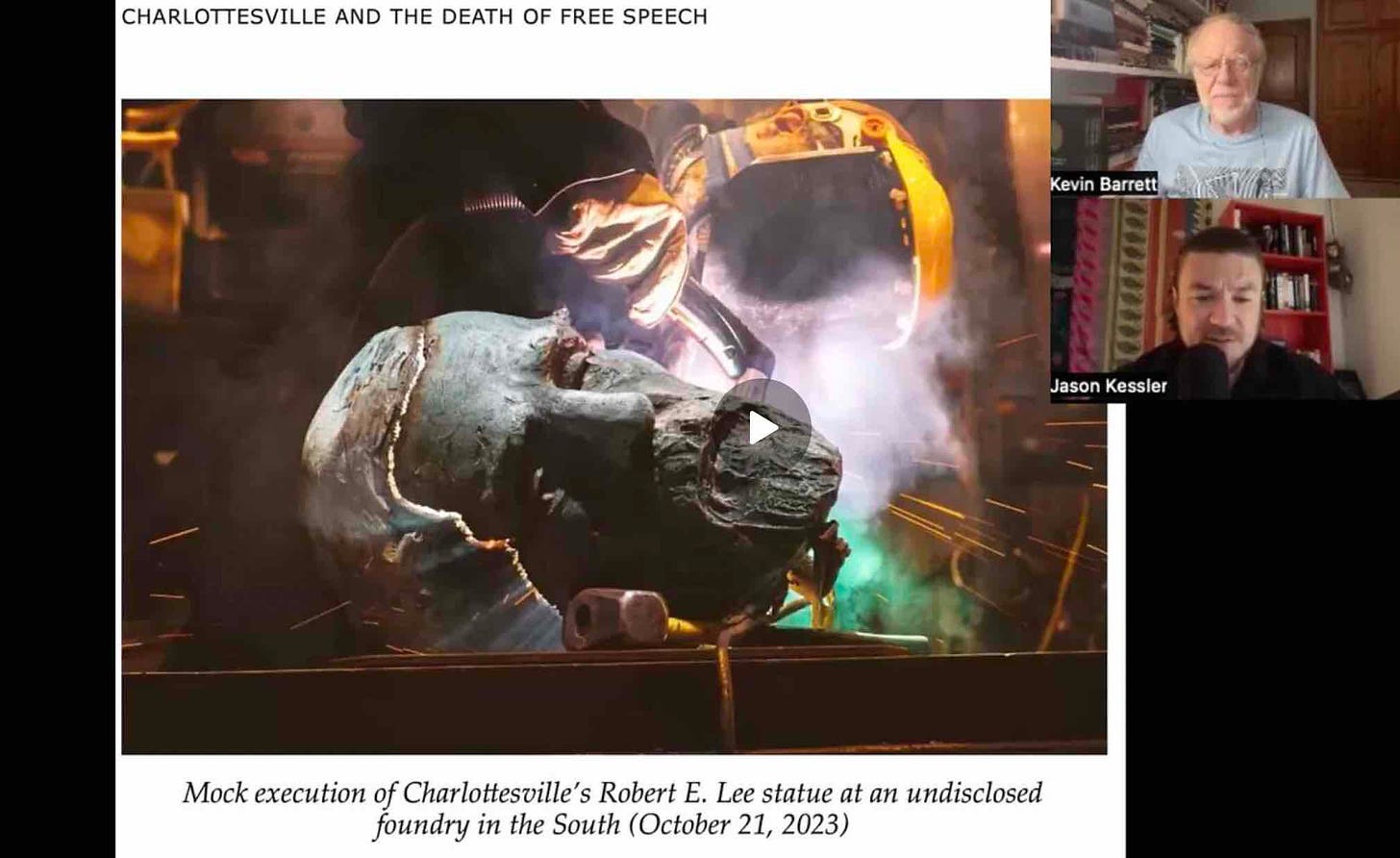
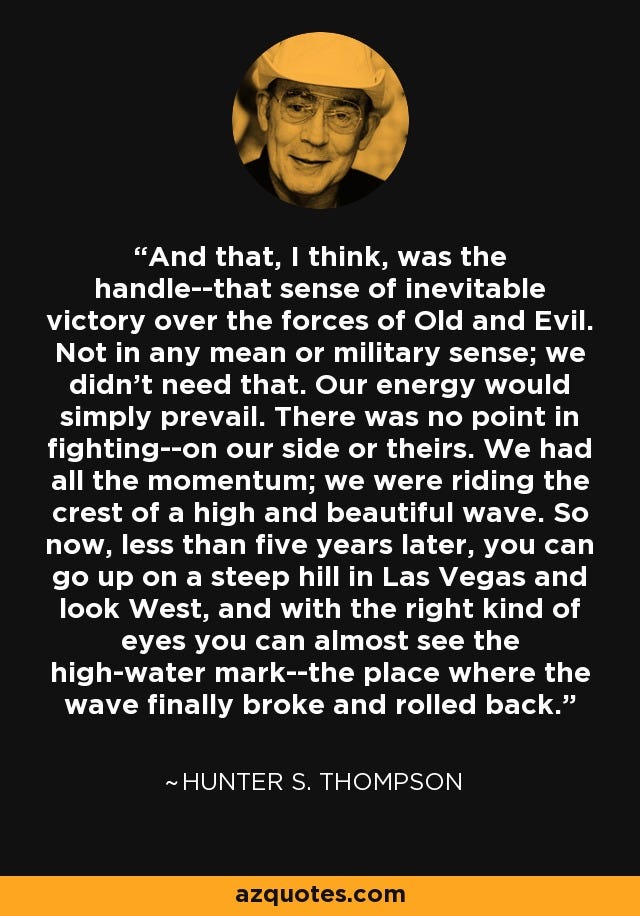
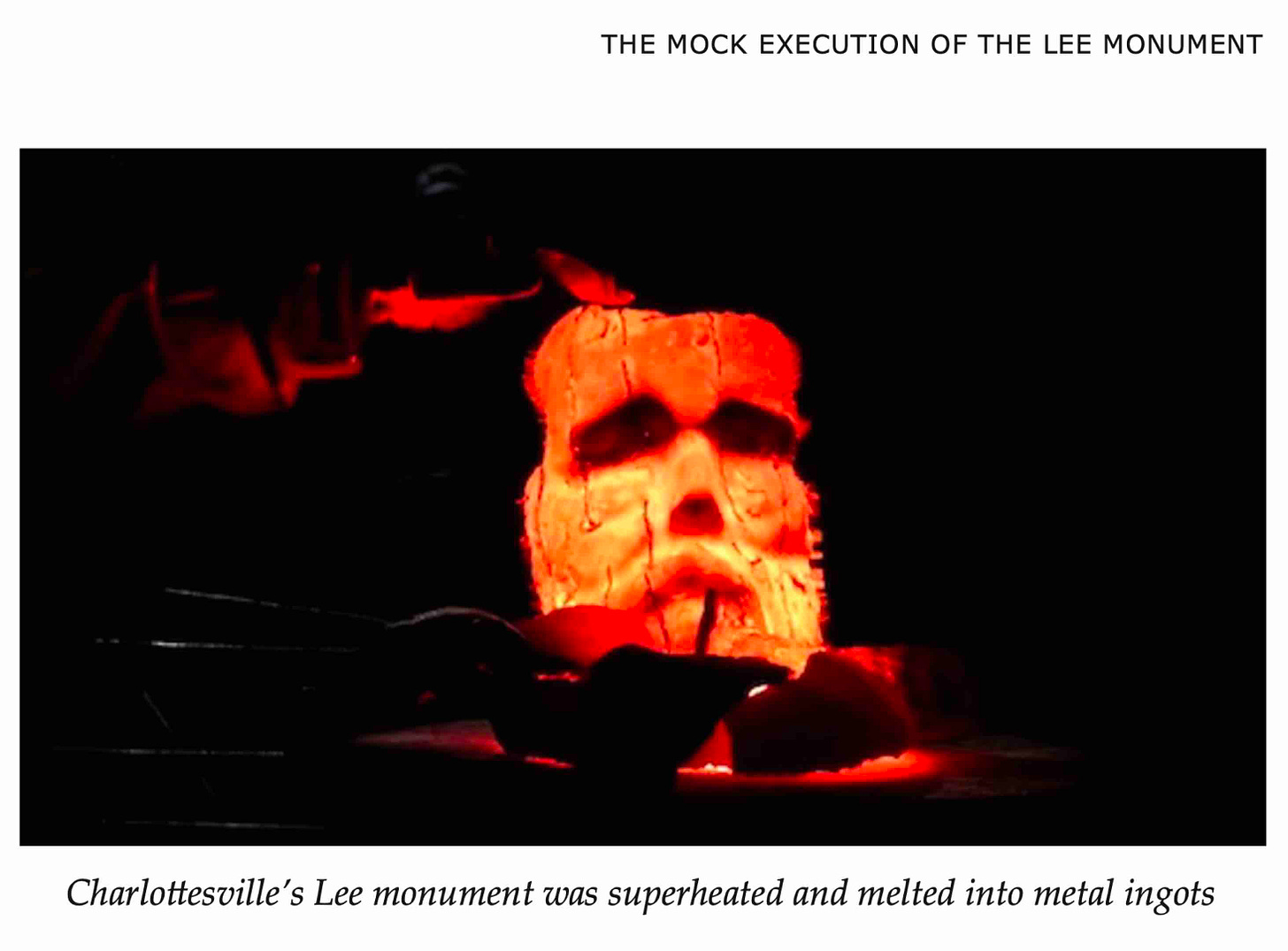
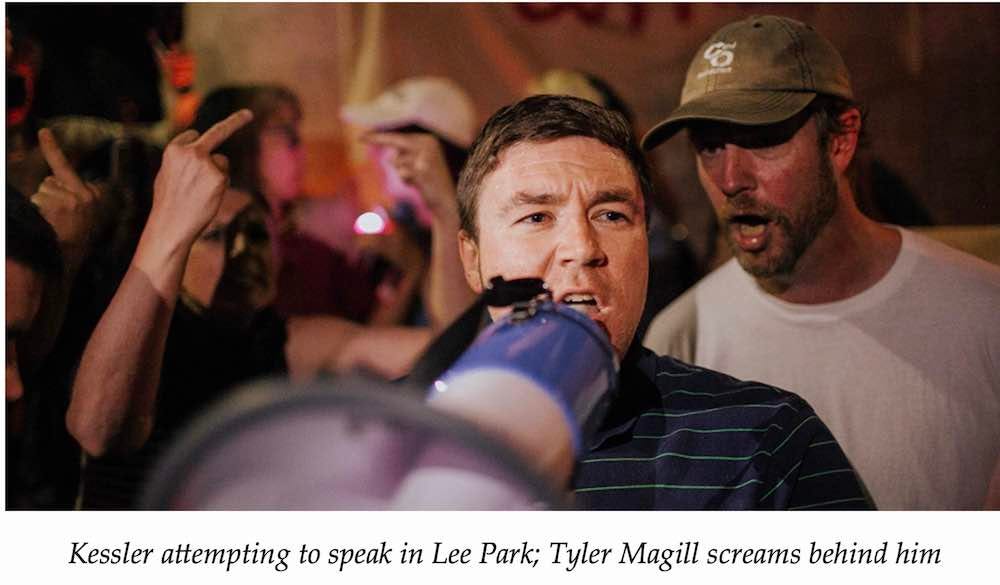
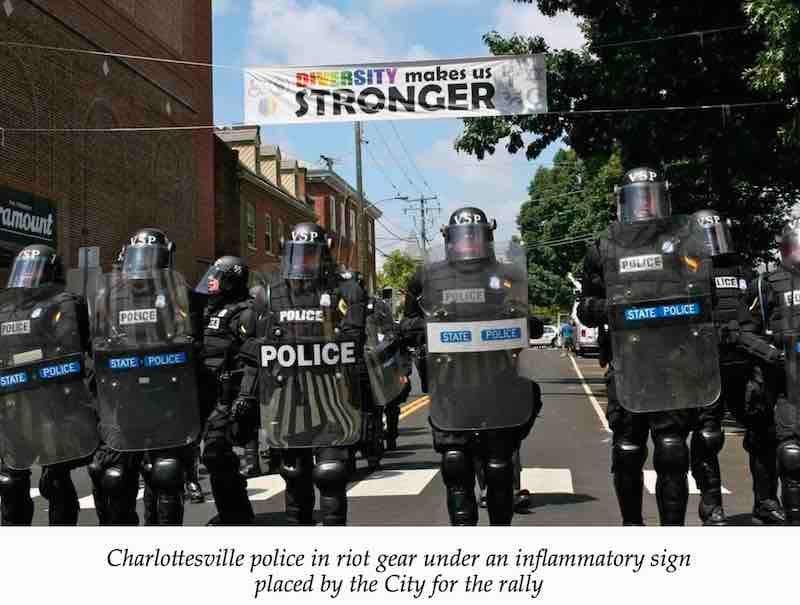




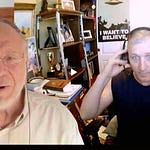
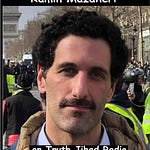
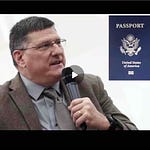
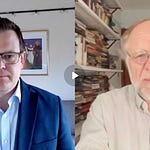

Jason Kessler on "Charlottesville and the Death of Free Speech"